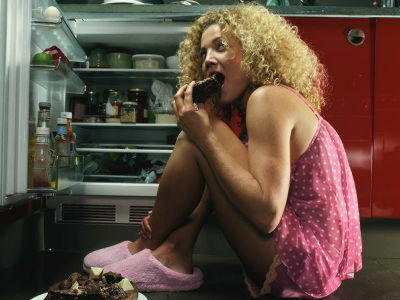What is the best diet for healthy sleep? What eating habits should I avoid?

It is widely known that what you take before going to bed can affect your sleep, such as ``if you drink coffee before going to bed, you won't be able to sleep.'' However, in recent years, it has also been shown that the daily eating pattern can affect the quality of your sleep. Research is progressing on the possibility of giving Erika Jansen, a nutritional epidemiologist at the University of Michigan, explains the best diet for healthy sleep.
Associations between sleep duration and dietary quality: Results from a nationally-representative survey of US adults - ScienceDirect
Changes in fruit and vegetable consumption in relation to changes in sleep characteristics over a 3-month period among young adults - ScienceDirect
https://www.sciencedirect.com/science/article/abs/pii/S2352721821000139
What’s the best diet for healthy sleep? A nutritional epidemiologist explains what food choices will help you get more restful z’s
https://theconversation.com/whats-the-best-diet-for-healthy-sleep-a-nutritional-epidemiologist-explains-what-food-choices-will-help-you-get-more-restful-zs- 219955

To investigate the relationship between sleep and diet in Americans over the age of 18, Janssen and his team found that people who follow the U.S. government's
Studies have found that people who don't follow dietary guideline recommendations, such as not consuming enough fruits, vegetables, legumes, and whole grains , tend to sleep less than those who do. It turns out .
Additionally, a study of 1,000 young people between the ages of 21 and 30 found that increasing fruit and vegetable intake in their diets over a three-month period improved sleep quality and reduced insomnia symptoms. It has been reported that.

Examples of foods that may be associated with better sleep include
Additionally, foods rich in dietary fiber, such as beans and oatmeal, and foods such as chicken, which are high in the essential amino acid tryptophan , are also thought to be associated with high-quality sleep. Similarly, salmon, which is rich in magnesium, vitamin D, iron, omega-3 fatty acids, and manganese, is highly beneficial for improving sleep quality.
On the other hand, it has been pointed out that saturated fatty acids contained in hamburgers, fries, and processed foods may shorten the time of `` slow wave sleep '', which is considered to be the most effective way for the body to recover.

Also, carbohydrates such as
Furthermore, alcohol has a sedative effect that makes it easier to fall asleep, but it also shortens the period of REM sleep that occurs immediately after falling asleep, resulting in disrupted sleep patterns and increased wakefulness during the night. . Therefore, it has been pointed out that alcohol reduces the quality of sleep.
In addition, ingesting caffeine before bedtime inhibits the action of adenosine , a hormone that promotes sleepiness, making it difficult to fall asleep.

In addition, Janssen pointed out that continuous excessive intake of calories should be avoided as it can lead to weight gain, which is one of the contributing factors to obstructive sleep apnea syndrome .
Janssen's research team also reports that chemicals used in the production of food packaging plastics, such as pesticides, mercury, and phthalates, can affect sleep. These chemicals can also be found in foods commonly referred to as 'health foods,' meaning that some foods may contain both beneficial and harmful ingredients for sleep. was suggested.
In conclusion, Janssen recommends getting a good night's sleep by eating healthy meals throughout the day, avoiding caffeine, alcohol, and high-calorie foods in the two to three hours before bed, and staying away from bright displays. We encourage you to continue practicing good hygiene .

Related Posts:







